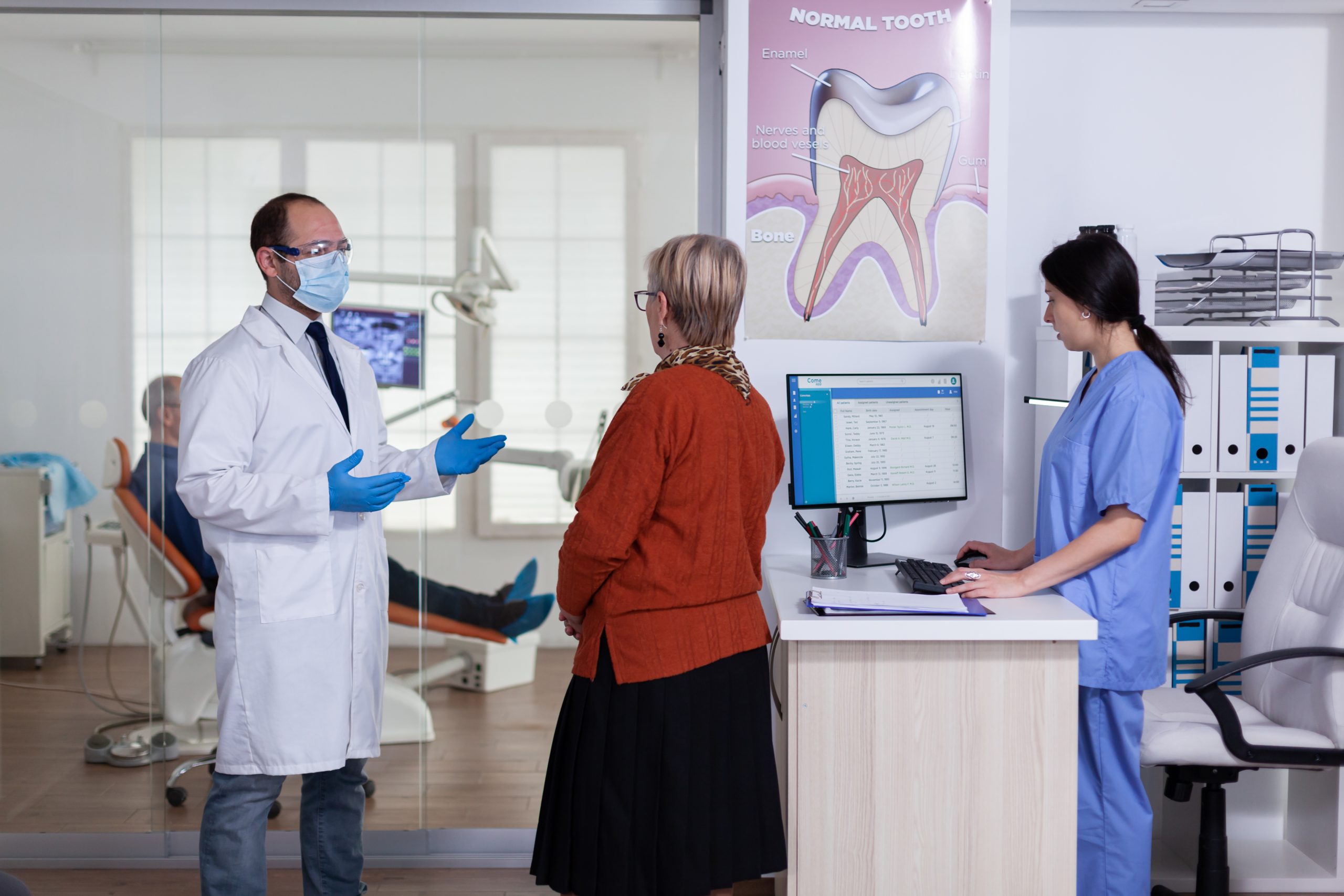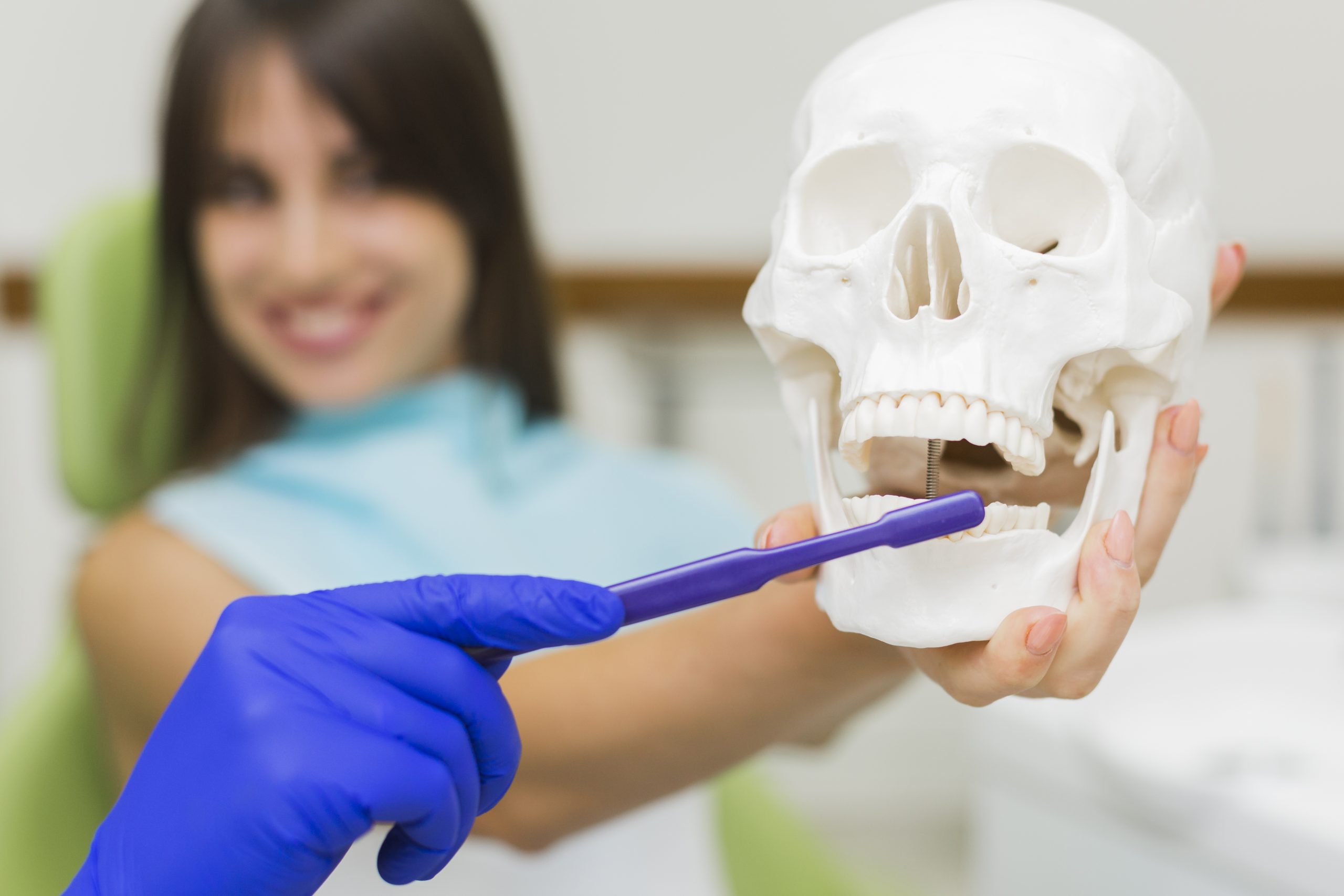When considering tooth replacement, one key question often comes up: “Is it cheaper to get dentures or implants?” Cost is understandably a major factor in the decision-making process. With a wide range of treatment options available, knowing what to expect financially can help you feel more confident and informed.
Costs can vary significantly based on your oral health and the number of teeth that need replacement. They are also influenced by the materials used and whether preparatory treatments, such as extractions or bone grafting, are necessary. While dentures often have a lower initial cost, implants may be considered a longer-term option, depending on factors like durability and ongoing maintenance needs.
In this blog, we’ll compare the costs of dentures and implants not just in terms of dollars, but in the value they may offer over time. We’ll also explore the factors that affect treatment pricing in Perth, including dental materials, preparatory procedures, and follow-up care. Lastly, we’ll explain why a professional consultation is essential before deciding which path is right for your smile.
Contents Navigation
- Summary of The Content
- Overview of Dentures and Denture Costs
- Overview of Dental Implants and Dental Implant Costs
- Dental Implants vs. Dentures: Key Differences
- Factors That Influence Costs in Perth
- Cost Comparison Between Dentures and Implants
- Long-Term Value and Ongoing Maintenance Costs
- Functionality and Lifestyle Considerations Beyond Price
- Payment Plans and Financial Options Available in Perth
- How to Decide Between Dentures and Implants
- Questions to Ask Your Perth Dentist Before Choosing
- Final Thoughts
Summary of The Content
- Dentures are removable oral appliances made to replace missing teeth and are available as either full or partial sets.
- In Perth, the cost of dentures usually ranges from $2,795 to $4,700 for a full set, with additional expenses for relines, adjustments, or replacements over time.
- Dental implants require inserting a titanium post into the jawbone, which supports a custom-made crown.
- Implant costs in Perth vary, with a single implant usually priced between $3,140 and $4,510.
- Implants provide strong support during eating and speaking, while dentures may shift slightly and may require adhesive.
- Cost differences depend on treatment complexity, materials used, additional procedures like bone grafts, and clinic-specific fees.
- Dentures may need more regular maintenance, while implants also require care but less frequent adjustments.
- Many dental clinics in Perth offer payment plans or accept schemes like CDBS or DVA. Terms should be confirmed with the clinic.
Overview of Dentures and Denture Costs
Dentures are removable appliances designed to fill the gaps left by missing teeth, thereby supporting oral function and appearance. They are often recommended for patients who have lost multiple teeth because of decay, gum disease, or injury. They can assist with chewing, speaking, and preserving facial structure, contributing to improved confidence and daily comfort.
There are two primary types of dentures, classified by the extent of tooth loss:
- Full dentures:
Also called complete dentures, these dental appliances replace all teeth in either the upper or lower jaw and directly rest on the gums. They are designed to mimic natural teeth and gum tissue and are custom-fitted for each patient. - Partial dentures:
These are used when some natural teeth are still present. They fill gaps in the smile, helping prevent remaining teeth from shifting. They are usually held in place with metal or acrylic clasps.
If dentures are recommended, the process of getting them involves several stages. Each step plays an important role in helping the denture fit securely, function effectively, and feel as natural as possible. Here’s an overview:
- Initial dental assessment:
During this appointment, the dentist examines your gums, bone ridges, and any remaining teeth to determine if dentures are a suitable option. Diagnostic scans or X-rays may be taken, and your goals, preferences, and medical history will be discussed. - Taking impressions:
Custom moulds of your mouth are taken using dental impression materials. These are used to create accurate models that guide the design and construction of the denture. - Wax try-in appointment:
A temporary version of the denture is created in wax, allowing you and your dentist to assess the fit, bite, and appearance. Adjustments can be made before the final version is produced. - Final denture placement:
The finished denture is inserted and checked for comfort and function. You’ll receive instructions on daily cleaning, insertion, and removal. - Follow-up appointments:
After wearing your denture for a short period, minor adjustments may be needed to address pressure points, discomfort, or bite alignment.
Once dentures have been fitted, they require regular maintenance to promote long-term comfort and oral health. The following are common maintenance needs for denture wearers:
- Relines:
Changes to the shape of your gums or bone over time can affect the fit of your dentures. A denture reline involves adding material to the underside of the denture to improve how it sits in your mouth. - Fracture or wear adjustments:
Dentures may become worn or develop small fractures with daily use or accidental damage. These issues can often be addressed through professional reshaping or modification. - Denture replacement:
Over time, general wear, changes in the shape of your mouth, or reduced function may affect how well your denture fits. This can lead to the need for a new denture, often every five to eight years. - Ongoing dental check-ups:
Regular visits allow your dentist to monitor the health of your oral tissues. They can also check the fit of your denture and make any necessary adjustments.
When planning for dentures, it’s helpful to consider both the initial cost and potential future maintenance needs. In Perth, the cost of an upper denture generally ranges from $1,555 to $3,800. Meanwhile, a complete set (upper and lower) ranges from $2,795 to $4,700. Additional costs may apply over time for relines, modifications, or full replacements.
Overview of Dental Implants and Dental Implant Costs
Dental implants are a surgical option for replacing missing teeth and may help improve function and appearance in appropriate cases. Unlike removable dentures, they are placed into the jawbone and act as artificial tooth roots. They may be used to replace a single tooth, several teeth, or a full arch, depending on individual clinical needs.
A dental implant consists of three main components. Each part works together to provide support and stability. Here’s a breakdown:
- Implant post:
This is a small titanium screw that is surgically placed into the jawbone. It acts as an artificial root and provides the base for the replacement tooth. Over time, the surrounding bone may fuse with the implant through a process known as osseointegration. - Abutment:
The abutment is a connector piece that attaches to the top of the implant post. It links the implant to the crown and is usually added once healing has occurred. - Crown:
The crown is the visible part of the tooth replacement. It is crafted to match the colour, size, and shape of your natural teeth. Once completed, it is attached to the abutment to provide both function and aesthetics.
If you’re considering this treatment, it’s helpful to understand what dental implants usually cost in Perth and what factors can influence pricing. The cost of a single dental implant generally ranges from $3,140 to $4,510. For multiple teeth, pricing will vary according to the number of implants and the type of restoration used. It may also be influenced by additional procedures, such as extractions or bone grafting.
A comprehensive assessment by a qualified dental professional is needed to determine if there is sufficient healthy bone for implant placement. Factors like bone density, medical history, and oral hygiene habits all influence whether this treatment is appropriate.
Dental Implants vs. Dentures: Key Differences
Choosing between dental implants and dentures involves more than just comparing costs. Each option has its unique feel, level of care, and way of working in everyday life. Understanding these differences can help you make a decision that suits your needs and priorities.
Below are some of the functional and structural distinctions between these two tooth replacement options:
- Stability
- Dental implants are surgically placed into the jawbone and can offer greater stability during eating.
- Dentures rest on the gums and may move slightly in some cases, particularly if the fit changes over time.
- Daily maintenance
- Dentures must be removed daily for cleaning and stored in a cleansing solution overnight.
- Implants are cared for similarly to natural teeth, using brushing and flossing, although additional cleaning tools may be recommended.
- Appearance and feel
- Implant-supported crowns are crafted to closely match the look and feel of natural teeth.
- Dentures can also appear lifelike, but some patients may feel a difference in comfort or movement during speech or chewing.
- Jawbone health
- Because implants integrate with the jawbone, they may help maintain bone volume over time.
- Dentures do not stimulate the bone in the same way, and this may lead to gradual bone resorption in some cases.
- Adjustment over time
- Denture relines involve reshaping the underside of the denture for a better fit. They are often needed as the gums and jawbone naturally change over time.
- Implants generally require fewer physical adjustments, but routine dental visits remain essential.
The suitable option varies for each person and depends on oral health, lifestyle, budget, and treatment goals. These factors should be discussed during a personalised dental consultation.
Factors That Influence Costs in Perth
One common question patients ask when exploring tooth replacement options is this: “Is it cheaper to get dentures or implants?” While cost plays a big role in decision-making, it’s important to know that several variables can influence the total price of either treatment. Understanding these elements can help you plan more confidently and have informed conversations with your dental provider.
Below are some common factors that can influence what you might pay:
- Materials used:
The quality and type of materials selected for your treatment significantly impact the overall cost. For example, high-impact acrylics or flexible bases in dentures may carry higher fees. Meanwhile, implants made from titanium or zirconia can vary in cost and durability. - Complexity of treatment or surgery:
More involved cases usually come with increased fees. For implants, this may include challenging placements or anatomical limitations that require longer dental implant procedures. In denture cases, adjustments to bite, jaw structure, or custom aesthetic work may also add to the total. - Additional procedures:
Bone grafting, tooth extractions, or soft tissue adjustments are sometimes required before placing implants. In some cases, additional steps may also be involved when preparing for dentures. - Type of prosthesis:
The type of restoration being created—whether it’s a single implant, implant-supported denture, full denture, or partial denture—will directly influence total pricing. - Clinic-specific fees:
Costs can vary between dental clinics in Perth, depending on their location, equipment, and experience. Additionally, some clinics include consultations, imaging, and follow-up care in their pricing, while others may charge for these services separately.
Cost Comparison Between Dentures and Implants
Cost is a major factor that people consider when exploring ways to replace missing teeth. Many of them might ask, “Is it cheaper to get dentures or implants?” While the answer depends on your specific needs, the table below outlines typical costs in Perth to help guide initial comparisons.
| Treatment | Dentures | Dental implants | ||
| Option | Price | Option | Price | |
| Replace one missing tooth | Not commonly used | – | Single implant | $3,140 – $4,510 |
Replace several missing teeth | Partial denture |
Cost dependent on case | Implant-supported bridge | $7,545 – $10,820 |
| Multiple implants | $3,140 – $4,510 per implant | |||
| Replace all teeth in one arch | Full upper denture | $1,555 – $3,800 | All-On-4 (per arch) | $24,275 – $42,745 |
| Full lower denture | Price dependent on case complexity | |||
| Replace all teeth (upper and lower) | Full denture set | $2,795 – $4,700 | All-On-4 (both arches) | $48,550 – $85,490 (combined estimate) |
These figures are general estimates and can vary based on factors like your oral health, the complexity of the treatment, and whether additional procedures are needed. Speaking with a dental professional will help you understand what’s involved and receive a personalised quote.
Long-Term Value and Ongoing Maintenance Costs
Beyond the initial cost, ongoing care and potential future expenses can make a difference in how dentures or implants suit your long-term needs. Each treatment has its set of maintenance requirements, which may affect comfort, cost, and convenience over time.
Denture Maintenance Considerations:
- Fit changes over time:
The shape of your gums and jaw can change, which may lead to looseness and require denture adjustments. - Relines may be needed:
As the bone and soft tissues shift, periodic relining helps maintain fit and comfort. - Replacements may be required:
Some patients opt to replace their dentures every few years if the materials have worn down or the fit is no longer ideal. - Daily cleaning is essential:
Dentures should be thoroughly cleaned each day to prevent plaque buildup, odours, or irritation. - Storage and handling care:
Dentures need to be stored in water or a denture solution when not in use to prevent warping or drying out.
Dental Implant Maintenance Considerations:
- Routine dental check-ups are required:
Regular monitoring helps maintain gum health around the implant and detect any early issues. - Professional cleaning might be recommended:
In some cases, a dental professional may need to clean around the implant to maintain gum health and remove buildup. - Crown or abutment may need replacement:
While the implant post is designed to integrate with bone, the visible components can wear or loosen over time. - Good oral hygiene is critical:
Daily brushing and flossing help keep the tissues around the implant healthy and reduce the risk of peri-implantitis. - Bite forces can affect longevity:
Clenching or grinding may increase wear on implant components, possibly requiring future maintenance.
Both options require long-term care and occasional professional attention. To help you understand what to expect over time and which option suits your goals and lifestyle, talk to your dentist.
Functionality and Lifestyle Considerations Beyond Price
While cost is important, how the replacement option performs in everyday situations is just as critical. Eating, speaking, cleaning, and overall comfort can vary based on whether you choose dentures or dental implants. Understanding these practical differences can help you feel more confident in your decision. Here’s what to know:
- Eating
- Dentures:
Some foods may be harder to chew, especially sticky or tough items, such as caramel, toffee, hard lollies, nuts, or chewy meats. It can take time to adjust your eating habits and develop confidence with denture use. - Implants:
Implants are anchored in the jawbone, which can offer more stability during chewing. Many people find they can eat a wider range of foods more comfortably over time.
- Dentures:
- Speaking
- Dentures:
Wearing dentures may cause temporary changes in speech due to altered tongue placement and articulation. These effects, such as a mild lisp, generally lessen as the individual adapts and gains more speaking practice. - Implants:
Because they are secured to the jawbone, implants generally do not interfere with speech. They tend to feel more like natural teeth, which may make speaking feel more familiar.
- Dentures:
- Cleaning
- Dentures:
Dentures must be removed daily for cleaning, which adds an extra step to your oral hygiene routine. They also need to be soaked overnight to stay moist and maintain shape. - Implants:
Implants are cleaned like natural teeth with brushing and flossing, though special tools may be recommended to clean around the implant area.
- Dentures:
- Comfort and stability
- Dentures:
Dentures may feel bulky or shift slightly during use, particularly if the fit changes over time. - Implants:
Implants are secured within the jaw and may feel more stable after healing.
- Dentures:
If deciding between options feels challenging, discussing your goals and preferences with a dental professional can give you valuable perspective.
Payment Plans and Financial Options Available in Perth
For many people considering dentures or dental implants, cost can be a significant factor, especially if treatment involves multiple steps or ongoing care. Some dental clinics in Perth may offer payment plans to help spread the cost over time. These may include weekly, fortnightly, or monthly instalments arranged through third-party financing providers.
In addition to private payment options, eligible patients may also have access to government-supported dental programs. These include the Department of Veterans’ Affairs (DVA) scheme for entitled veterans and the Child Dental Benefits Schedule (CDBS) for eligible children and teenagers. Each program has its eligibility criteria and may only cover specific services.
Since financial options vary between clinics, it’s advisable to ask your dental provider about the payment arrangements available. You can also check whether you might qualify for any support programs. Having clear information can help you make a more confident and thoughtful decision.
How to Decide Between Dentures and Implants
Choosing between dentures and dental implants is a personal decision that depends on a range of health, financial, and lifestyle factors. While cost is important, it’s not the only consideration — your long-term comfort, oral condition, and preferences also matter. Thinking through the points below can help you have a more informed discussion with your dentist.
Here are some key considerations before choosing a tooth replacement option:
- Oral health and bone condition:
Dental implants require healthy bone to support the implant post. In case you have gum disease or significant bone loss, your dental professional may recommend other options. They might also suggest preparatory treatment before implants can be considered. - Budget and financial flexibility:
Dentures generally have a lower upfront cost, while implants may involve a higher investment. It’s worth considering not just what you can afford now. You should also consider what makes sense in the long run in terms of value, maintenance, and comfort. - Long-term expectations:
Think about what you want from your dental treatment in the years to come. Some people prioritise durability or function, while others are more focused on aesthetics or ease of care. Your personal goals can help you make the right choice. - Daily habits and lifestyle preferences:
Factors like your oral hygiene habits and comfort with removable appliances can shape your decision. Your lifestyle and activity level may also play a role. For example, if you have a busy lifestyle, you may prefer a more low-maintenance option.
Although online research can be helpful, it’s not a substitute for personalised advice. A qualified dental professional can review your needs, discuss possible options, and guide you in selecting the approach suited to your circumstances.
Questions to Ask Your Perth Dentist Before Choosing
Before deciding between dentures and dental implants, it’s important to feel well-informed and confident. Asking the right questions during your dental consultation can provide a clearer understanding of what to expect. It also helps determine if an option fits your needs.
Below are practical questions that can guide your discussion and help you make a choice that aligns with your goals and circumstances:
- What are the estimated costs for each option?
Ask your dentist for a detailed breakdown of all expected costs, including consultations, treatment, and any potential follow-up appointments. It’s also helpful to know whether pricing could change based on the materials or procedures required. - Which option is suitable for my oral health?
Your dentist will examine your teeth, gums, and jawbone to determine whether dentures, implants, or another option is recommended. This assessment takes into account bone density, gum condition, and any existing dental issues. - What does the treatment process involve?
Each option has its timeline and steps, including appointments, impressions, fittings, or surgery. Understanding the full journey helps you plan for recovery and overall treatment time. - What are the ongoing maintenance needs?
Some treatments may require more regular follow-up care or at-home cleaning routines. Ask what’s involved in keeping the appliance functional and comfortable over time. - Will I need any additional procedures?
In some cases, treatments like bone grafting or extractions may be required before dental implants can be placed. Your dentist can explain whether these apply to your situation and what they involve. - What are the possible risks or limitations?
All dental procedures carry some level of risk or unpredictability. Knowing the limitations of each option helps you weigh up your decision more confidently. - How long can I expect each option to last?
While results vary, your dentist can share general expectations based on clinical experience and research. It’s essential to recognise that durability is influenced by your oral health, lifestyle, and regular maintenance.
Bringing a list of questions to your appointment shows you’re engaged in your care and helps you gather useful information. A personalised conversation with your dentist is a reliable way to explore an appropriate course of treatment for your needs.
Final Thoughts
When comparing dentures and dental implants, both options offer distinct benefits, depending on your individual needs, budget, and oral health. Dentures usually involve a lower upfront cost, while implants may offer greater long-term stability and comfort. The right choice depends on your circumstances and treatment goals.
It’s important to consider factors like maintenance, daily functionality, and how each option fits into your lifestyle. What works well for one person may not be suitable for another. A personalised consultation is a reliable way to explore which approach meets your needs and expectations.
Our Perth team at Karrinyup Dental Centre can provide professional advice and a detailed cost breakdown tailored to your needs. During your consultation, we’ll assess your oral health and explain all relevant options without pressure or assumptions. We’re here to help you make clear and confident decisions about your dental care.





